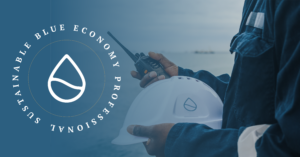Post by: Angie Knowles, ECO Canada
Like so many other areas of career development, engagement is not a simple case of all or nothing, but a more complicated matter of degree. Along this engagement “spectrum,” ECO Canada’s Professionals Engagement study identified 4 specific profiles or types.
Each of these categories reflects different responses to three specific engagement measures, as well as contrasting expectations on how long a staff member plans to stay with the current employer. Knowing which of these 4 types is the closest match to you or your employee is an excellent first step towards developing targeted and effective engagement techniques.
So, which of the 4 profiles below sounds the most familiar?
Types of Engagement of Environmental Professionals
Engagement Type 1: Committed
Employees in this category are fully engaged. As such, these workers do more than what is normally required for their jobs, feel that their contribution is valued and would recommend their employer as a good place to work. Importantly, Committed employees intend to stay with their current employer for three years or longer.
Compared to 40% of the general Canadian workforce, 49% of environmental professionals match this engagement profile.
Is This You? Consider pursuing professional development opportunities to keep building your potential.
Engagement Type 2: Strategic Switcher
Professionals who fall into this category are also fully engaged and thus respond positively to the three engagement measures (discretionary effort, the perception that their contribution is valued, and willingness to recommend their employer). In contrast to Committed employees, however, Strategic Switchers do not plan to stay with their current employer for three years or more.
Interestingly, a larger percentage of environmental employees also match this profile compared to the national norm. Whereas just 9% of Canadian workers are Strategic Switchers, 15% of environmental workers fit into this category.
Is This You? Consider how a fair compensation plan and unconventional benefits can influence the decision to stay or leave a particular employer.
Engagement Type 3: Detached
Detached employees are those who are not fully engaged, but still have plans to stay with their current employer over the next three years.
Relative to the overall Canadian benchmark, substantially fewer environmental workers fit into this profile. An estimated 22% of professionals in the environmental sector are Detached, in contrast to 30% of employees in the general Canadian workforce.
Is This You? Perhaps it’s time to move on, take a look at our succession planning for environmental professionals.
Engagement Type 4: Disgruntled
Workers in this category have a low overall level of engagement and do not intend to stay with their current employer for three years or longer.
Understandably, employees with this type of engagement often experience significant stress, since they are likely to be both unhappy and planning to leave in the near future.
Compared to 21% of Canadians in the overall labour market, about 14% of environmental workers fit the description of a Disgruntled employee.




